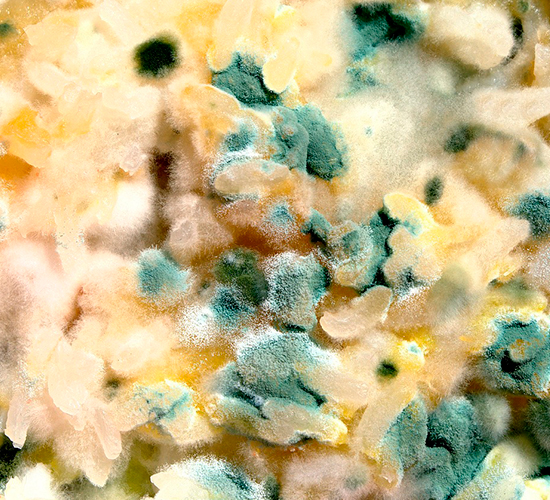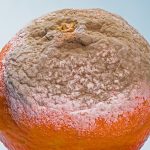What are mycotoxins and fungi in our food and why do we need to prevent them??

Recently, our researcher ACCDIS of the Institute of Agri-food Sciences, Animals and Environmental of the University of O'Higgins, Claudia Foerster performed a good practice guide for the prevention of fungi and mycotoxins in food.
Mycotoxins are toxic compounds produced naturally by some types of filamentous fungi or molds., that can cause serious illness. Good agricultural and manufacturing practices are important, Since, if hygiene protocols are not followed, proper storage and drying, may be present in the foods we consume on a daily basis.
Fungi are not plants or animals, but they are fundamental to life on earth. They are responsible for the decomposition of organic matter from almost every biological cycle on the planet.. However, some of these fungi can be harmful to plants, decreasing agricultural production and also for humans and animals. In stressful conditions, these fungi can produce mycotoxins that can develop an end to cancer to decreased immunity, Diarrhea, nausea and vomiting.

Mycotoxins are produced by molds, when there are water scarcity conditions, pests on crops or by excess humidity and temperature in the storage or drying of food. Human beings, they can also consume mycotoxins through animal foods (meat, egg and milk), who in turn have fed on feed (foods) contaminated with mycotoxins. For this reason Dr.. Claudia Foerster of the University of O'Higgins highlights "Food contaminated with fungi should never be given to slaughter animals. In addition, people should not smell the fungus and also not cut the food where the fungus is seen and consume the rest, as mycotoxins are not seen or felt. All food should be discarded completely.".
Regarding the diseases caused by consuming or smelling mycotoxins, Dr.. Claudia explains that each type of fungus and mycotoxin produces different diseases, for example: aflatoxins are most commonly found in nuts, dehydrated fruits, condiments, dairy or cereals, pueden producir enfermedad hepática o cáncer de hígado y la ocratoxina A, associated with foods such as coffee, cocoa, wine, condiments, Meat from pigs and cereals can cause kidney disease. Todas las micotoxinas tienen como efecto, decrease immunity.
To understand a little more about the effect that mycotoxins have on our health, the researcher invites the community to watch the following instructional video on the type of diseases that produce mycotoxins. See here.
Prevention of contamination of food from sowing
According to the recommended practices on the basis of Good Agricultural Practices and Good Manufacturing Practices and Codex Alimentarius recommended, among other things:
- Before harvest: minimize insect damage, infections and mechanical damage to plants during cultivation. If irrigation is used, be sure to apply it evenly on all plants and before harvesting, ensure that all equipment to be used for harvest storage is in good condition. In the case of maize, the harvesting season must be planned, it has been shown that corn grown in warmer months may contain higher fungal levels than corn grown in colder months.
- In sowing: Avoid planting the same crop in the same field for two consecutive years. Clean and prepare the ground very well, ensuring that no residue of old spikes remains, stems and other stubble that can be used for the development of fungi. Whenever possible, sow variety of seeds developed to resist fungi and pests.
- Storage: stacking or piling up freshly harvested wet products should be avoided. Sun drying of some products under high humidity conditions, can result in the development of fungi. It is advisable to ventilate the products through forced air circulation. Greater attention should be paid to the drying and degree of humidity that each crop must have and good cleaning procedures should also be adopted to reduce the minimum presence of fungi and insects in storage facilities..
- Transport: it must be ensured that the containers for the transfer of these foods are free of visible proliferation of fungi, insects and any contaminated material. On the other hand, grain shipments must be protected from the accumulation of additional moisture, using covered containments, airtight or tar tarloited
At home, what we can do to reduce exposure to these compounds
Faced with this concern, the Dra. Claudia emphasizes that it is important not to consume foods with mushrooms, these should be removed completely, the surface where the contaminated food was located should also be disinfected, this in order to remove fungi and spores. Finally, indicates that food (as herbs, condiments and fruits) should be dried in places with low humidity and temperature "kitchens are a bad place to dry food, may increase the likelihood that these will be contaminated with fungi and mycotoxins," he said..
